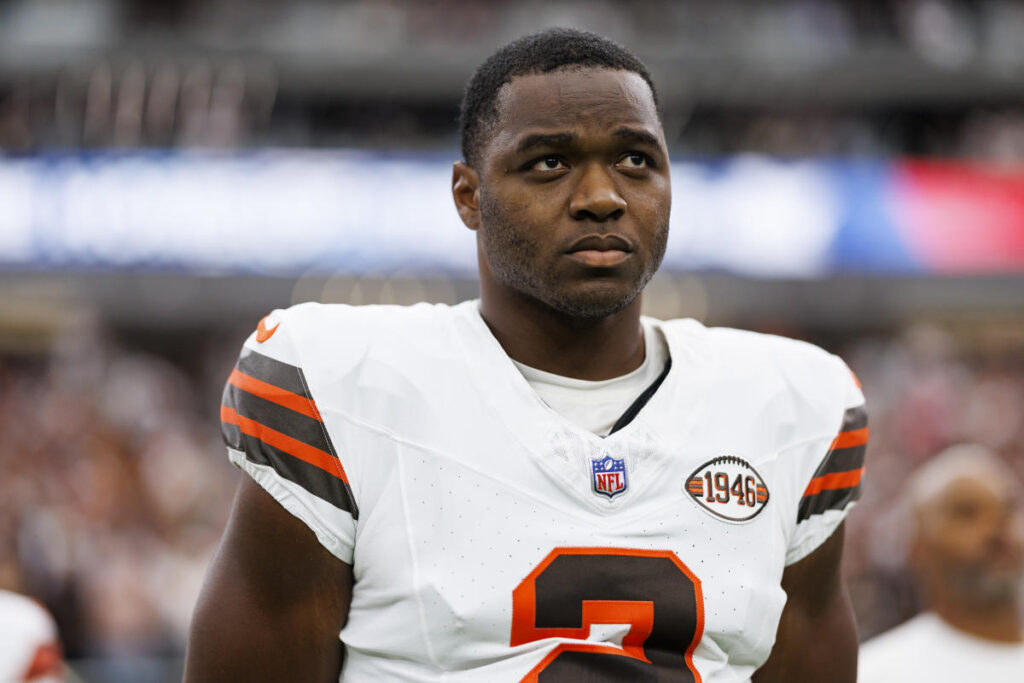In a whirlwind of activity on the fantasy football front, the Buffalo Bills made a significant move by acquiring star wide receiver Amari Cooper from the Cleveland Browns. This transaction followed closely behind the news of the New York Jets acquiring All-Pro Davante Adams, creating a buzz among fantasy managers adjusting their rosters. For Cooper, the trade represents a new beginning, having been underutilized in a struggling Browns offense. For the Bills, it adds another key target for quarterback Josh Allen, especially after losing Stefon Diggs in a recent trade. The implications of these moves are substantial for fantasy football, meriting a thorough analysis of their potential impact.
With Cooper joining the Bills, it’s evident that quarterback Josh Allen’s prospects as a passer are on the rise. Although Allen has excelled as a multifaceted playmaker throughout his career, the addition of Cooper significantly enhances both his floor and ceiling as a fantasy quarterback. This season, he has faced challenges in the passing game, with only three finishes better than QB19 and low projections for passing yards and touchdowns. Through six games, Allen is on pace for less than 3,300 passing yards, which would be the lowest since his 2019 season. The presence of Cooper, a proven talent able to create separation, should invigorate Allen’s performance and provide stability, especially as it limits the reliance on less productive players like Mack Hollins.
Amari Cooper’s own fantasy value is set to increase with this transition. Having struggled with a low catchable target rate while in Cleveland, Cooper is primed for a resurgence thanks to the upgrade in quarterback play. Joining an offense with an MVP-caliber signal-caller like Allen signals brighter days ahead for Cooper, who has a track record of being a focal point in the offense. Earning wide receiver two status with the potential for weekly WR1 performances seems attainable with a capable quarterback delivering him catchable passes. Additionally, the other Bills pass catchers such as Khalil Shakir and Dalton Kincaid are also likely to benefit from Cooper’s presence, albeit with some volatility in target distribution as they adjust to this new dynamic.
On the other side of the trade, the Cleveland Browns are left with a vacuum of targets to fill in the absence of Cooper. However, the quarterback situation is less than ideal for fantasy implications, as Deshaun Watson continues to struggle. His performance metrics are alarming, with a league-low average of 5.1 yards per pass attempt, compounded by a high uncatchable pass rate and significant sacks taken. This context makes the outlook for Browns receivers unattractive, as they will be tasked with working under a less efficient quarterback. With Cooper gone, Jerry Jeudy is expected to step into the role of the primary receiving threat, potentially increasing his snap counts. Meanwhile, second-year receiver Cedric Tillman and Elijah Moore are likely to see a slight bump, yet their fantasy value remains limited due to the erratic quarterback play.
Despite the lack of clarity in the Browns’ receiving corps, tight end David Njoku could emerge as a somewhat positive story. With Cooper’s departure expected to create additional target opportunities, Njoku might see an increase in his routes run, and he has already shown versatility by aligning outside on a notable percentage of snaps. If he can stay healthy, Njoku’s potential for additional targets makes him a more appealing option at tight end, especially for fantasy managers with less secure starting options. However, the overall dysfunction within the Browns’ offense diminishes the chances of significant production from any player on the team.
In summary, the recent trades involving Amari Cooper and Davante Adams have set a new tone for several teams and fantasy managers alike. Cooper’s acquisition by the Bills is anticipated to yield positive results for both him and Josh Allen, enhancing their fantasy credentials and potentially generating a richer pool of targets for the team. For the Browns, however, the trade leaves them in a tough spot, struggling to extract value amid an offense plagued by performance issues. As fantasy football managers adjust their rosters in response to these developments, the viability of each player’s contribution will continue to evolve throughout the season, making strategic consideration paramount.

